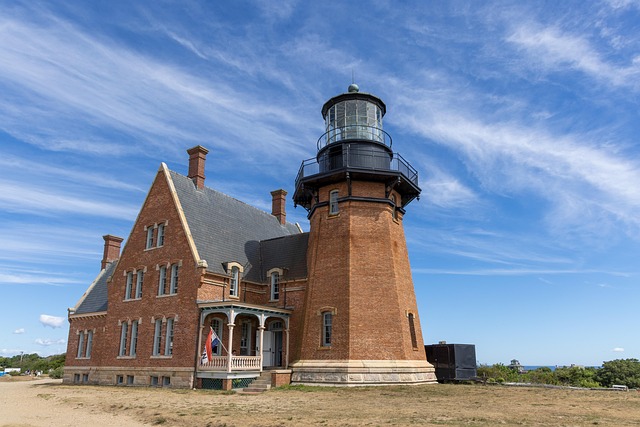In Rhode Island, the Telephone Consumer Protection Act (TCPA) restricts spam calls and promotes consumer privacy. Community gardens in East Providence must comply to avoid legal issues while promoting their initiatives. Engaging a TCPA Lawyer or Attorney in Rhode Island helps leaders understand permitted communication methods like personalized direct mail, email newsletters, and in-person visits, balancing engagement with respect for residents' privacy rights.
“In Rhode Island, community gardens are flourishing hubs of urban agriculture, but they must navigate complex communication laws to thrive. The Telemarketing and Consumer Protection Act (TCPA) and its regulations, particularly concerning spam calls, significantly impact how these gardens operate. This article explores the intricate relationship between TCPA and community gardens in East Providence, offering valuable insights for project leaders. From understanding the act’s reach to implementing effective communication strategies, we guide garden organizers on compliance, ensuring they can connect with gardeners without legal repercussions with the help of a dedicated TCPA lawyer in Rhode Island.”
Understanding TCPA and Its Impact on Community Gardens in Rhode Island
In Rhode Island, the Telephone Consumer Protection Act (TCPA) plays a pivotal role in regulating communication practices, especially concerning community gardens and urban agriculture initiatives. This federal law was enacted to curb abusive phone marketing tactics, including spam calls, and protect consumers from unwanted communications. For East Providence’s thriving community garden network, understanding TCPA regulations is essential to ensure compliance and avoid legal repercussions.
Community gardens often engage in various communication methods, from local radio spots to door-to-door notifications and email newsletters. However, these activities must adhere to TCPA guidelines to prevent unauthorized calls or messages. A TCPA lawyer or attorney in Rhode Island can guide garden organizers on acceptable communication practices, helping them navigate the law while promoting their sustainable initiatives effectively. By adhering to these rules, community gardens can foster growth both literally and legally, creating a greener and more compliant environment for all participants.
Navigating Spam Call Laws: A Guide for Urban Agriculture Projects
Navigating Spam Call Laws is essential for Urban Agriculture Projects looking to thrive in today’s digital era. The Telephone Consumer Protection Act (TCPA) in Rhode Island restricts unsolicited phone calls, including those from community gardens promoting their initiatives. A TCPA Lawyer or Attorney in Rhode Island can guide projects on how to communicate effectively while adhering to these laws. By understanding when and how to make calls, garden leaders can avoid potential legal issues and ensure their messages reach the right audience.
For East Providence urban agriculture, compliance means striking a balance between engaging stakeholders and respecting privacy. This involves obtaining explicit consent for marketing purposes, providing an opt-out mechanism in every communication, and limiting calls to certain times. Engaging a Spam Call Law Firm or TCPA expert in Rhode Island can help community gardens navigate these nuances, fostering strong connections with supporters while staying within the boundaries of the law.
The Role of a TCPA Lawyer in Ensuring Compliance for Community Gardens
In the vibrant landscape of East Providence’s urban agriculture community, navigating communication laws is essential to ensure thriving, sustainable growth. The Telephone Consumer Protection Act (TCPA) plays a pivotal role in this regard, protecting residents from unwanted spam calls and text messages. A TCPA lawyer in Rhode Island acts as a crucial guide for community gardens, helping them understand and comply with these regulations. They provide expertise on what constitutes permissible communication, ensuring that garden initiatives can effectively reach out to volunteers, donors, and participants without crossing legal boundaries.
With the help of a skilled TCPA attorney from Rhode Island, community garden organizers can avoid costly fines and maintain positive relationships within their networks. These lawyers offer tailored strategies for compliance, including best practices for consent management, call and text messaging protocols, and training sessions to educate volunteers on responsible communication methods. By engaging a Spam Call Law firm or Spam Call Lawyers in Rhode Island, East Providence’s urban agriculture projects can flourish, nurtured by a supportive legal environment that respects privacy rights while fostering community engagement.
Common Mistakes to Avoid in Communicating with Gardeners under TCPA
When engaging with gardeners in East Providence’s urban agriculture community under the Telephone Consumer Protection Act (TCPA), organizations and individuals often make avoidable mistakes that can lead to legal repercussions. One common blunder is failing to obtain explicit consent for communication, especially through automated or prerecorded calls. Gardeners must give their permission for such interactions, and any prior relationship doesn’t automatically grant this right. Another error is misidentifying the caller’s purpose, which could be a violation if it creates an expectation of different information or services.
Additionally, spamming gardeners with repeated, unwanted messages is a direct breach of TCPA guidelines. This includes marketing calls, text messages, or even emails related to community garden initiatives. It’s crucial to maintain accurate records of consent and communication preferences to avoid these pitfalls. Engaging with gardeners through personalized, relevant messaging while respecting their choices can help ensure compliance with TCPA regulations, as overseen by reputable TCPA lawyers and attorneys in Rhode Island.
Effective Communication Strategies for Community Gardens: Staying Within Legal Boundaries
Community gardens in East Providence, like any other communication-centric organization, must navigate the intricate web of regulations to ensure effective and legal outreach. The Telephone Consumer Protection Act (TCPA) in Rhode Island sets strict guidelines for calls made with automated technology or prerecorded messages, commonly known as spam calls. Understanding these laws is crucial for community garden leaders who want to engage residents without facing legal repercussions.
To stay within legal boundaries, adopt simple and compliant communication strategies such as personalized direct mail, email newsletters, or in-person visits. When using automated systems, ensure you have explicit consent from recipients. Additionally, providing an easy opt-out method for calls or messages is essential. Engaging a TCPA lawyer Rhode Island can offer specialized guidance tailored to the unique needs of community gardens, ensuring compliance and effective outreach.






